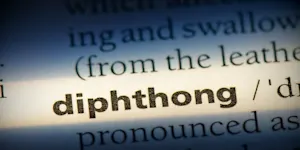What Makes This Word Tick
"Cogitate" is a delightful little word with a certain gravitas that suggests deep, serious thinking. It's not just idle musing; when you cogitate, you're really putting your mind to work, possibly with your brow furrowed in concentration.
If Cogitate Were a Person…
Cogitate would be the wise professor full of insight and prone to contemplation. Perhaps dressed in a tweed jacket with elbow patches, it would have a gentle, thoughtful demeanor and always seem a bit lost in thought.
How This Word Has Changed Over Time
The essence of "cogitate" hasn't significantly shifted over the years. It still conveys the idea of deep thinking. However, in today's fast-paced world, the level of contemplation implied by "cogitate" might seem more leisurely or old-fashioned compared to the rapid-fire decision-making many of us are used to.
Old Sayings and Proverbs That Use Cogitate
While there aren't ancient proverbs featuring "cogitate," the act of deep thinking is timeless. Consider sayings like "Take time to think" or "Look before you leap," which all promote the concept of careful consideration.
Surprising Facts About Cogitate
Interestingly, "cogitate" comes from the Latin "cogitatus," the past participle of "cogitare," meaning "to think." Despite its Latin roots, the vocabulary it's associated with isn't exclusive to academic circles, and it often crops up in everyday contexts where serious thinking is required.
Out and About With This Word
In everyday life, you might find "cogitate" used in intellectual circles or by someone with a penchant for language. Perhaps at a book club or a philosophy seminar. It's also a favorite among crossword enthusiasts for its elegant structure.
Pop Culture Moments Where Cogitate Was Used
Though not a common word in pop culture, "cogitate" might appear in a film or TV series to highlight a character's intellectual demeanor. Imagine Sherlock Holmes pondering a perplexing case while muttering, "I need to cogitate on this."
The Word in Literature
"Cogitate" fits perfectly into classic literature and might surface in the narratives of authors like Charles Dickens or Jane Austen, where characters often engage in deep reflections and intricate thought processes.
Moments in History with Cogitate
Think of the great thinkers of history, like Plato or Newton, whose intellectual feats defined eras. While they may not have used "cogitate," the spirit of the word is embodied in their thoughtful approaches to unraveling the mysteries of the universe.
This Word Around the World
Across languages, the concept of cogitation is universally understood, even if the word itself isn't directly translated. In French, "cogiter" serves a similar purpose, whereas in German, you might hear "nachdenken."
Where Does It Come From?
Tracing back to its Latin origins, "cogitate" carries with it the weight of centuries of thoughtful contemplation. It passed through Middle French before settling into English in the 16th century, maintaining its intellectual charm.
How People Misuse This Word
People sometimes use "cogitate" when they simply mean "think," stripping it of its deeper connotations. It's like calling a marathon a walk—technically true, but it misses the intensity involved.
Words It’s Often Confused With
Contemplate: While both imply deep thinking, "contemplate" often includes an element of visualizing or considering concepts more at length.
Ponder: This is similar but can suggest a more casual or less formal reflection.
Consider: A much broader term that means to think about something generally, without the depth implied by "cogitate."
Additional Synonyms and Antonyms
Synonyms include "muse," "reflect," and "deliberate." Antonyms could be "ignore" or "disregard," which represent the absence of thought.
Want to Try It Out in a Sentence?
At the cozy bookshop, Edith often found a corner to cogitate the mysteries within the pages of her favorite novels.
















